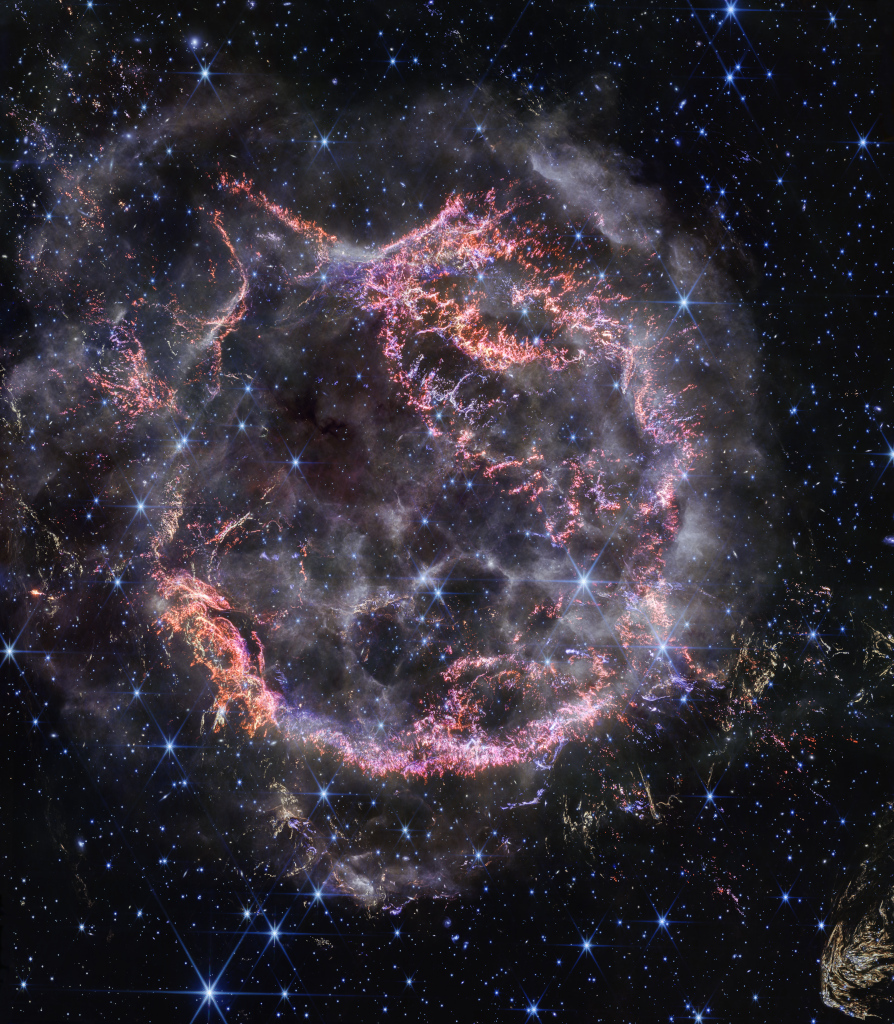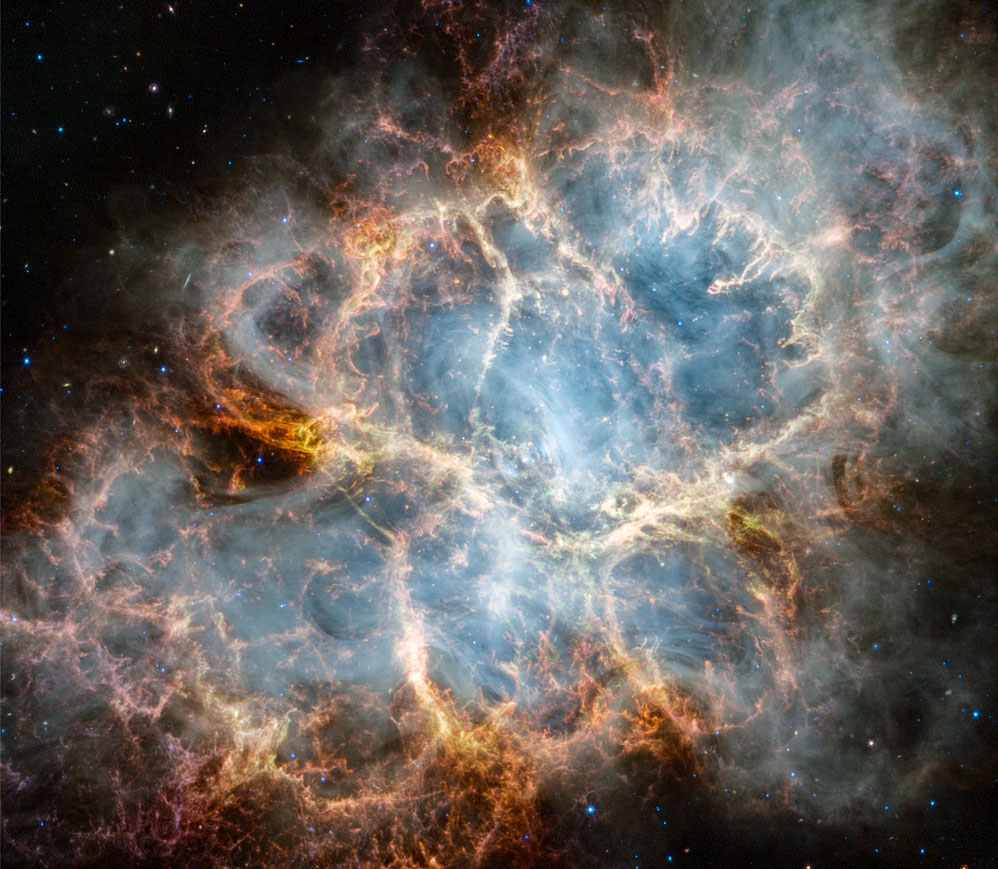NGC 6960: 女巫的扫帚星云
A starfield is shown that has a multi-filament nebula flowing across it horizontally. The most prominent colors are red and blue. Please see the explanation for more detailed information.
图中显示的星场中,多丝状星云水平流动。最突出的颜色是红色和蓝色。有关更多详细信息,请参阅说明。










